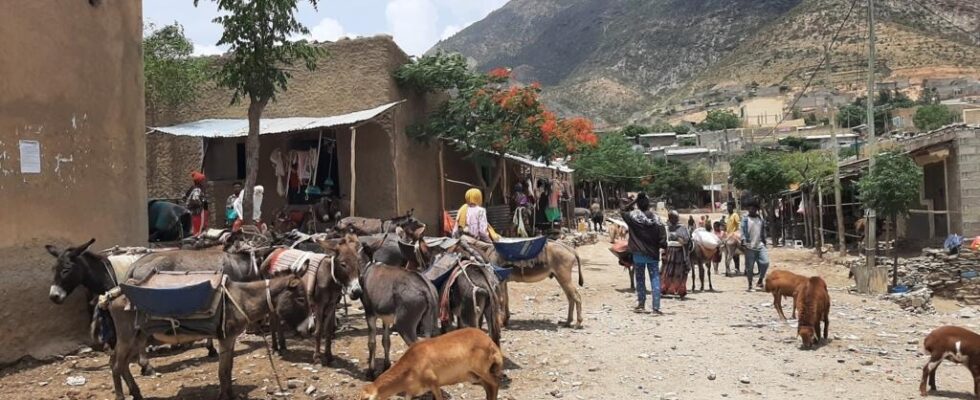Twenty months after the end of the war, Tigray, in northern Ethiopia, still faces immense challenges. The conflict pitted the Tigrayans against the Ethiopian central government, allied with neighboring Eritrea and other regions such as the Amharas. The 2020-2022 war could have left up to 600,000 dead, according to the African Union, with some experts suspecting genocide. Twenty months after the Pretoria peace agreement, the region is still bled dry.
2 min
With our special correspondent in Higol, Sebastian Nemeth
In Ethiopiain Tigray, these days, farmers are in the fields sowing, as the rainy season is about to begin. The farmers shout, push, encourage their animals to pull their plows and dig the furrow for the seeds. Teklay plants Dagusha in the local language, a pearl millet that will be used to make injera – a pancake that is the basis of Ethiopian cuisine – or alcohol. However, his heart is not in it.
” During the war, our livestock was killed and eaten by the soldiers. We didn’t farm. Today, the fighting has stopped, but we have little hope. Last year, the locusts devastated everything. This year, we continue, but it’s mainly because we inherited this from our ancestors. We don’t expect more than 50 kilos of harvest. A single bag “, before adding: ” It’s not even our land. We rent it and pay half of the production. Even the oxen are not ours. The ones I had, I had to sell them during the conflict to survive. “, explains Teklay.
His neighbor complains of the same difficulties: lack of equipment, animals, means… Tigrayan farmers are suffering. Some do not even have enough oxen and must use donkeys to pull their plows. Peace has not helped revive the sector.
” Some humanitarian aid has reached the village, but not enough. I have some animals, but I will have to sell them to buy food. Today, we really need fertilizer and livestock. ” he adds.
Tigrayan farmers are now left hoping for more help from the international community to avoid famine.
Read alsoEthiopia: In Addi Daarob, survivors of the Tigray war still shocked by the bombings of the federal army
